You have no items in your cart. Want to get some nice things?
Go shoppingThis year, I’ve done a lot of reading.
This is not entirely surprising. I spent the first six months of 2011 working in a book store, and the second half on an MA course, and both of those are occupations that do tend to bring you into contact with the written word. Factor in that I was a book addict to begin with, and it all adds up to a lot of newly filled shelves and a fairly empty bank account. As far as I’m concerned, though, it was entirely worth it.
Most of the books I read were interesting, many were good, some were horrible and a few were absolutely wonderful. This is my pick of what 2011 had to offer with, as you will see, a little bit of cheating to allow for the inclusion of books originally published several years ago in their original language but which came out in English during this year.
New Finnish Grammar – Diego Marani
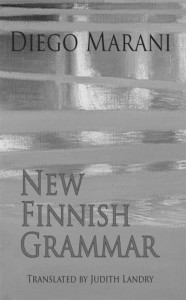
I get a little bit of hipster smugness when I talk about this one. This dull-looking book (grey cover, in translation, by someone you’ve never heard of) was the word-of-mouth find of my year, and one of the most beautifully written things I’ve ever read. Stunningly simple and perfectly understated – its gently-moving plot centres around a sailor who loses his memory and his language during World War II – it does things with language that will have anyone aspiring to be a writer weeping out of pure jealousy. Absolutely incredible.
The Tiger’s Wife – Tea Obreht
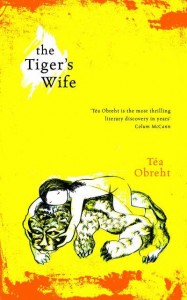
When I heard about Tea Obreht, I hated her immediately. She is 25 years old, The Tiger’s Wife is her first novel and she won the Orange prize with it. Then I actually read The Tiger’s Wife, and I hated Tea Obreht even more, because it’s wonderful. Its story is immediately engaging, and written in a way that’s so light and vivid it’s a pleasure to read. It’s also got a brilliant, dirty sense of humour that makes the reader buy its maddest plot twists (and they’re fairly mad – its plot involves a man who can’t die and a tiger who comes to live in a small Balkan town). Gory, weird magical realism with more than a hint of Angela Carter to it (which, for me, is extremely high praise), it’s lovely, hilarious and disturbing by turns, and absolutely deserves all the prizes it gets.
The Lost Books of the Odyssey – Zachary Mason
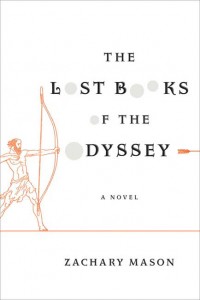
This one might be even odder than The Tiger’s Wife. A bizarre, clever and at times extremely eerie book that plays with what we think we know about the story of the Odyssey. It retells the familiar material over and over again, with a slightly nightmarish twist in the tale each time – what would happen if Penelope married one of the suitors? If Odysseus had died at sea? If Helen had never run away with Paris? (The answer, in The Lost Books of the Odyssey, is: extremely creepy things). You probably do have to be familiar with the original to get the most out of this, but if you are, The Lost Books of the Odyssey is fascinating, spine-tingling stuff.
Censoring an Iranian Love Story – Shahriar Mandanipour
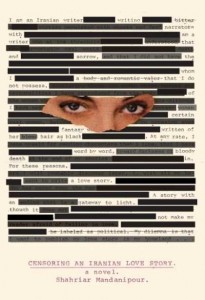
This is the kind of fiction that turns facts about other people far away – in this case Iran, where we all know in a vague way that things are Very Bad – into something that feels entirely real to you. It’s a love story about a place so horrifically repressive that there can’t be any love stories, a book about what censorship really does to human beings. Terrifying, astonishing and darkly funny, it’s a mind-bendingly clever concept that’s beautifully executed (in this case an unfortunately apt word choice), and the saddest thing about it is that in places it’s clearly not very fictional at all.
The Invention of Murder – Judith Flanders
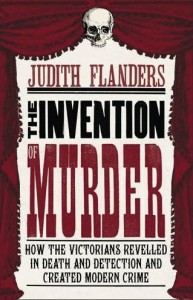
A far more light-hearted look at the facts behind fiction was Judith Flanders’s study of the Victorian origins of our national love affair with murder. The British adore a good murder (see: Christie, Agatha; Murders, Midsomer; The Daily Mail, half of the articles in it), and this book, a perfect mix of scholarly analysis and gossipy interest, gives the weird-but-true stories of the (quite nasty) events that started it all off. It’s a fascinating subject, and Judith Flanders has researched it well, presenting the results readably and with a clear interest in the stories she’s telling. Since these include bodies in barns, dead men in train carriages and locked room mysteries, it’s difficult not to be just as sucked in by them as their original audience was. A very guilty pleasure.
The Hummingbird Bakery Cake Days – Tarek Malouf
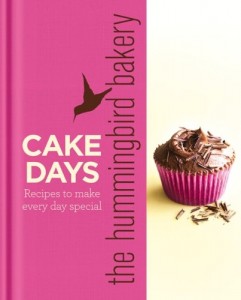
When I wasn’t reading books, I spent a lot of 2011 cooking from them. I have a sweet tooth and an American taste in red velvet and buttercream, and so the Hummingbird Bakery occupies a place in my heart that is bordering on religious obsession. As far as I’m concerned, this book is the last word in cakes (Guinness and chocolate! Blueberry crumble! Maple pecan!), cupcakes (Tiramisu! Earl Grey! That red velvet!), and things so sugary that your teeth will crumble away as soon as you look at them. The only problem I have with it is that Tesco’s has not yet woken up to the near-medicinal need for buttermilk that Cake Days induces in its readers.
So, that was the distillation of my year in books. But it doesn’t end there. My Christmas list looks a lot like an Amazon wishlist, so I’m fairly sure my 2012 is going to be just as bookish as 2011 was. I can’t wait.
Robin Stevens

About Robin Stevens
Robin started out writing literary features for Litro and joined the team in November 2012. She is from Oxford by way of California, and she recently completed an English Literature MA at King's College, London. Her dissertation was on crime fiction, so she can now officially refer to herself as an expert in murder (she's not sure whether she should be proud of that). Robin reviews books for The Bookbag and on her own personal blog, redbreastedbird.blogspot.co.uk. She also writes children's novels. Luckily, she believes that you can never have too many books in your life.




